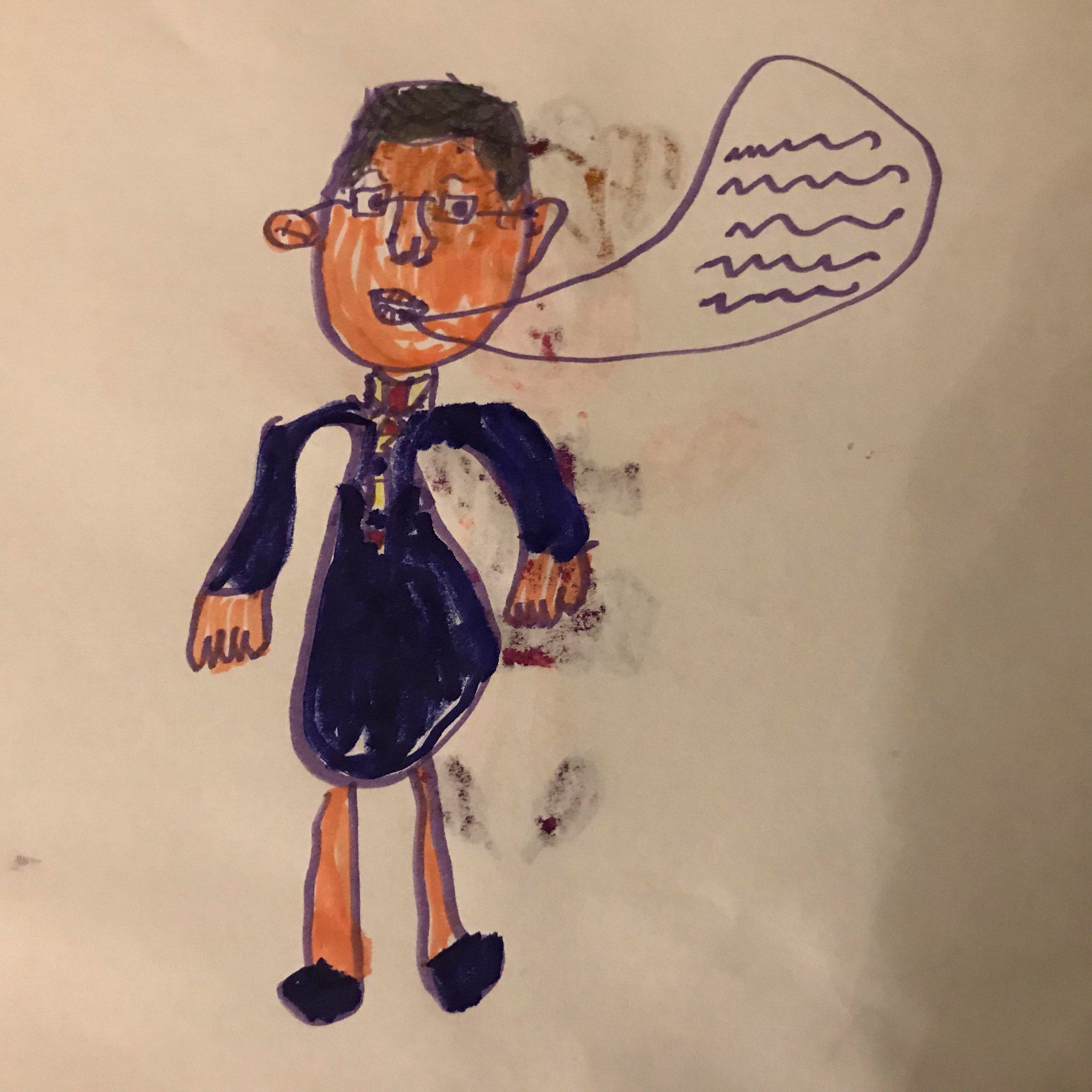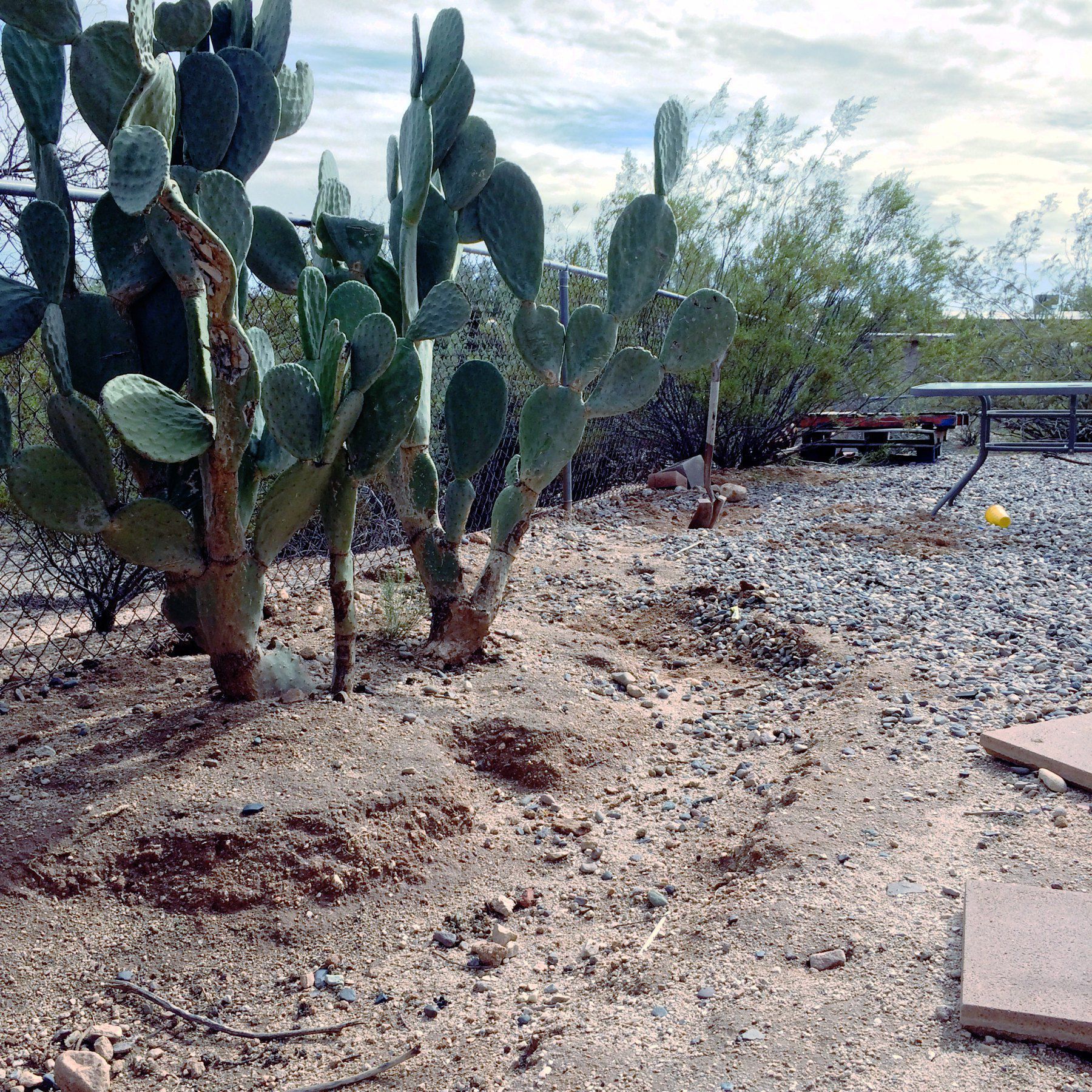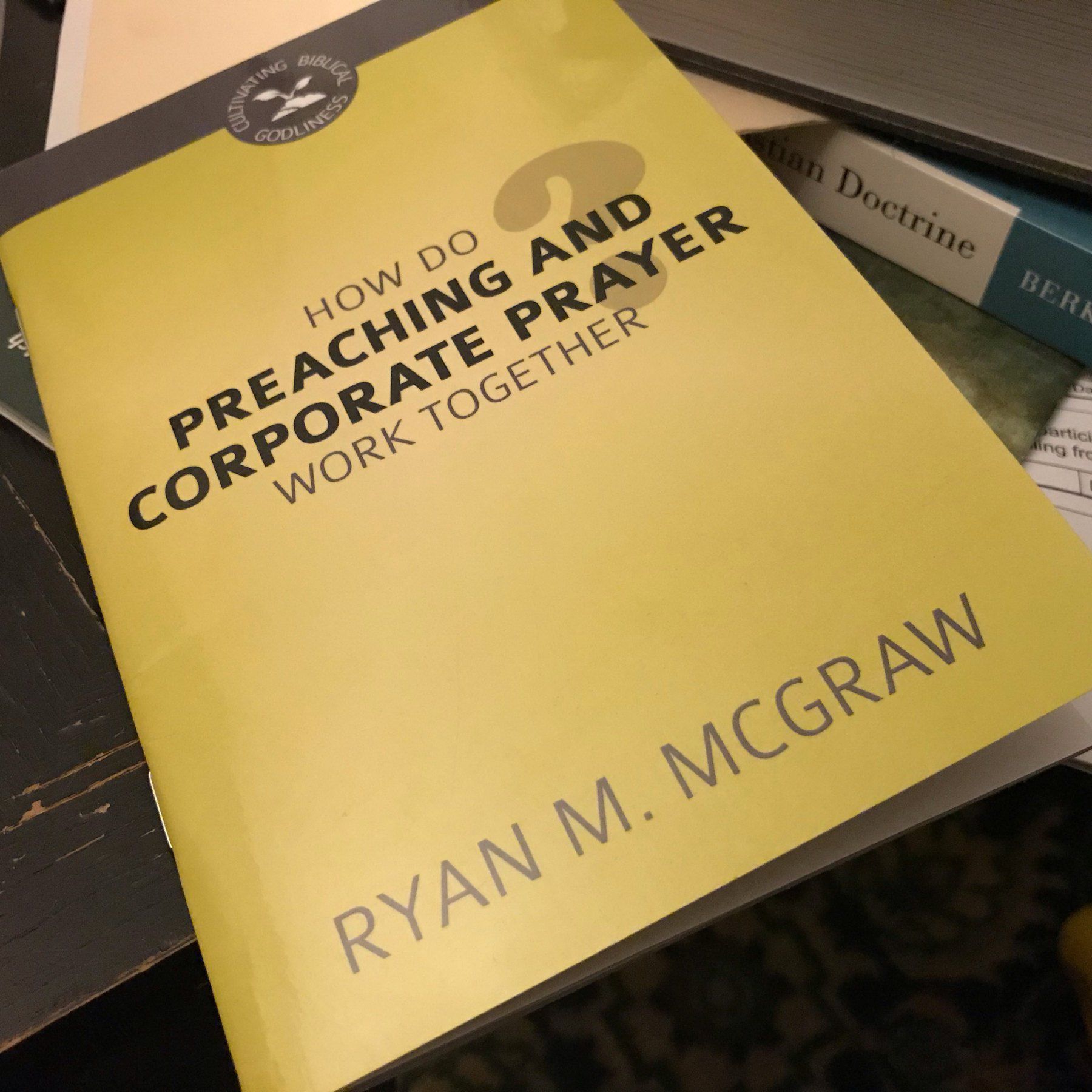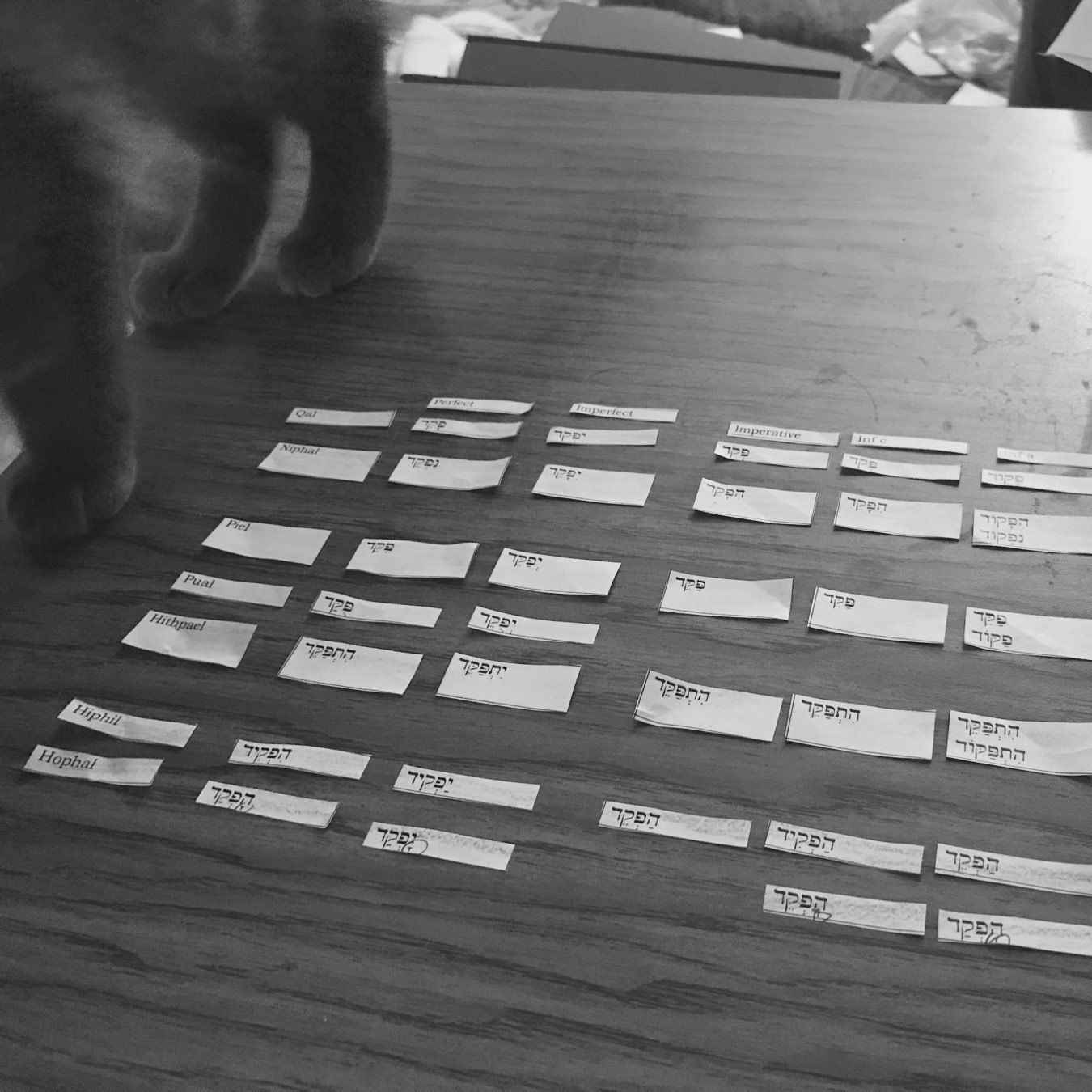Imagine that for your whole life you had only eaten dinner at Medieval Times, the stadium seating dinner-theater event with knights, horses, and lots of yelling. And imagine that every time you went to Medieval Times, you were told that this is what eating dinner is all about. You weren’t just getting fed with the food but also with the energy and excitement. This wasn’t just entertainment; this was life. And the power of this moment was going to carry you through to the next event.
Now, imagine your shock when one day you meet a family who, instead of going to Medieval Times every day, chooses to stay home for a dinner. And then—surprise!—they invite you to come over one evening.
The night arrives, you show up, and everything you expected is instantly confirmed. Instead of jousting, falconry, and the passion of the crowd, there’s just a short prayer, some squirmy kids, Bible reading, and very ordinary conversation about a very ordinary day.
As my former historical theology professor, R. Scott Clark, explains in response to a Twitter conversation, what I’ve described is similar to the paradigm crash many people experience who come to Reformed worship for the first time. Of course, some love it instantly, but others may have a hard time adjusting. I’ve seen both.
If you’re trying to wrap your head around Reformed worship, read Dr. Clark’s post. It might help you understand what is going on.
Photos by James Kirsop (Hillsong Worship Conference) and Experience Kissimmee (Medieval Times), on flickr

For a little more than a year now, I’ve been successfully using my 10.5” iPad Pro + Apple Pencil + Smart Keyboard as laptop replacement. I wanted to try this as a way to save money that could be spent on more expensive laptop choices. MacStories.net’s iPad Diaries gave me hope that this might be possible, and they were right.
There are some things I wish were different.
First, most apps that have a MacOS counterpart are more limited on iOS. This has not been a major problem. Though, I wish DEVONthink had a more robust iOS app.
Second, with this version of Pencil and iPad, I have no place to connect the pencil to the iPad. When I pointed this out to the folks at the Apple Store, I chuckled when they suggested I buy a leather sleeve for the pencil. What? You want me to lose the pencil and its fancy sleeve? Anyway, Apple knew this was a problem and may have solved it in today’s update. I solved the probelm with this excellent $15 case, which may still be necessary depending on how strong that new pencil magnet is. You don’t want to accidentally disconnect and lose your pencil when you slip your iPad into your bulging briefcase.
Third, after a while, the keyboard started to have trouble connecting to the iPad. The connection problems were tolerable for a while so I didn’t take it in. When the keyboard stopped working last week, it was out of warranty and I had to replace it. I guess that’s my bad; maybe.
Fourth, some features on some websites still don’t work as well as they should on iOS, but it’s rare.
That said, I’m willing to tolerate these things for a few reasons.
First, as a mentioned before, I want to save money. Second, besides being cheaper, there are some advantages the iPad has over a laptop.
-
It’s helpful having a super-portable camera and a full keyboard integrated into one machine. In this way, the iPad merges the benefits you would get separately from a iPhone and a laptop/desktop.
-
Working with documents, especially signing and sharing, has never been so easy. Before, if you sent me something to sign and return, I would need to print, sign, scan, upload, and then email it back to you. This would involve a computer, a printer, and a thumb drive. Now I just sign and email on the same device. Sure, the Pencil is different than the IPad, but they feel connected in a way a computer and a printer don’t.
-
I am a pacer. If I have a long talk with my dad on the phone, I may walk miles. I like talking to my dad. The iPad allows me to walk and work if I want. I’ve written whole sermons using a combination of the iPad’s built in transcription capabilities and its on-screen keyboard. A laptop would be too awkward and heavy for this.
-
But for me, the biggest benefit is how the iPad is less obtrusive than a laptop in various social situations. Some of the time, my iPad is on my desk, as pictured here. But I also use it in a whole bunch of other contexts. That’s only possible because the iPad is less likely to interrupt and obstruct social connections. For one, it’s smaller. It’s also more easily moved in and out of reach. And because it has a variety of working positions, it can be adapted quickly to fit different kinds of contexts, even changing ones. For some people this won’t matter very much, but doing the things I do as a minister, it’s a big deal. It makes the iPad a really flexible and useful machine.

Tomorrow, I’m going to start preaching through the amazing gospel of John. If you’d like to hear these sermons, paste our podcast feed into your favorite podcast app. We post a new sermon, usually two, every Sunday. covenantopctucson.org/feed/podc…
I saw the Salton Sea for the first time on my way home from presbytery yesterday. And since I only had one pair of shoes with me, I had to do some cleaning before church this morning. Also, I learned after we left the sea that the mud is probably toxic.
Thomas Watson has some good advice on how to read and search the Scriptures.
This is my former professor, W. Robert Godfrey, as drawn by my seven-year-old. Note the handsome striped tie. He’s giving a lecture on the ancient church, in case you can’t tell.

It’s been fifteen months since the accident. But after many repairs, Matt Haimovitz is getting his cello back. No more waiting, but now, it’s like watching a loved one come out of a coma.
No school today and it was raining. So while the ground was easier to dig, the kids expanded our backyard rainbasin.

I’m bad about overusing the word like. The Linguistic Evolution of ‘Like’ helps explain why.
This one is for @MichaelHorton_:
“Connected with this general view are the facts that he “learned obedience by the things which he suffered,” his “strong crying” and “tears,” the fact at the “entreated,” that he “was heard” and that he was God-fearing.” These things are a marvelously constructed drama dealing with us.”
💬 Gregory of Nazianzus, Oration 30.6
Today, I read Ryan McGraw’s exegetical defense for corporate prayer and its necessity for preaching. He bases his argument on John 14:12–14 and a certain pattern in Acts. Pretty convincing. It should be read along with his other essay-booklet, How Should We Pray at Prayer Meetings, which gives good advice on the specificity of prayer requests, the focus of our prayer, avoiding vain repetition, and more.
With that, let me encourage members and friends of Covenant to attend our 9:00am prayer meeting each Sunday before worship.

Charm, writes Joseph Epstein, is “a disappearing luxury”. Which is sad because charm makes our world brighter, lighter, and sweeter. Perhaps it’s not too late?
The dictionaries won’t tell you this, but when a scream and squeak have a baby, it’s called a screak. A screak is the high-pitched sound an un-oiled hinge makes when you open it. It’s the sound that gives you goosebumps when a fork scratches a plate the wrong way. And it’s also the sound my youngest makes to entertain herself.
If you do work that benefits your community, you can dramatically increase your impact by collaborating with other helpers. Learn more about the collaborative impact approach. It’s important.





